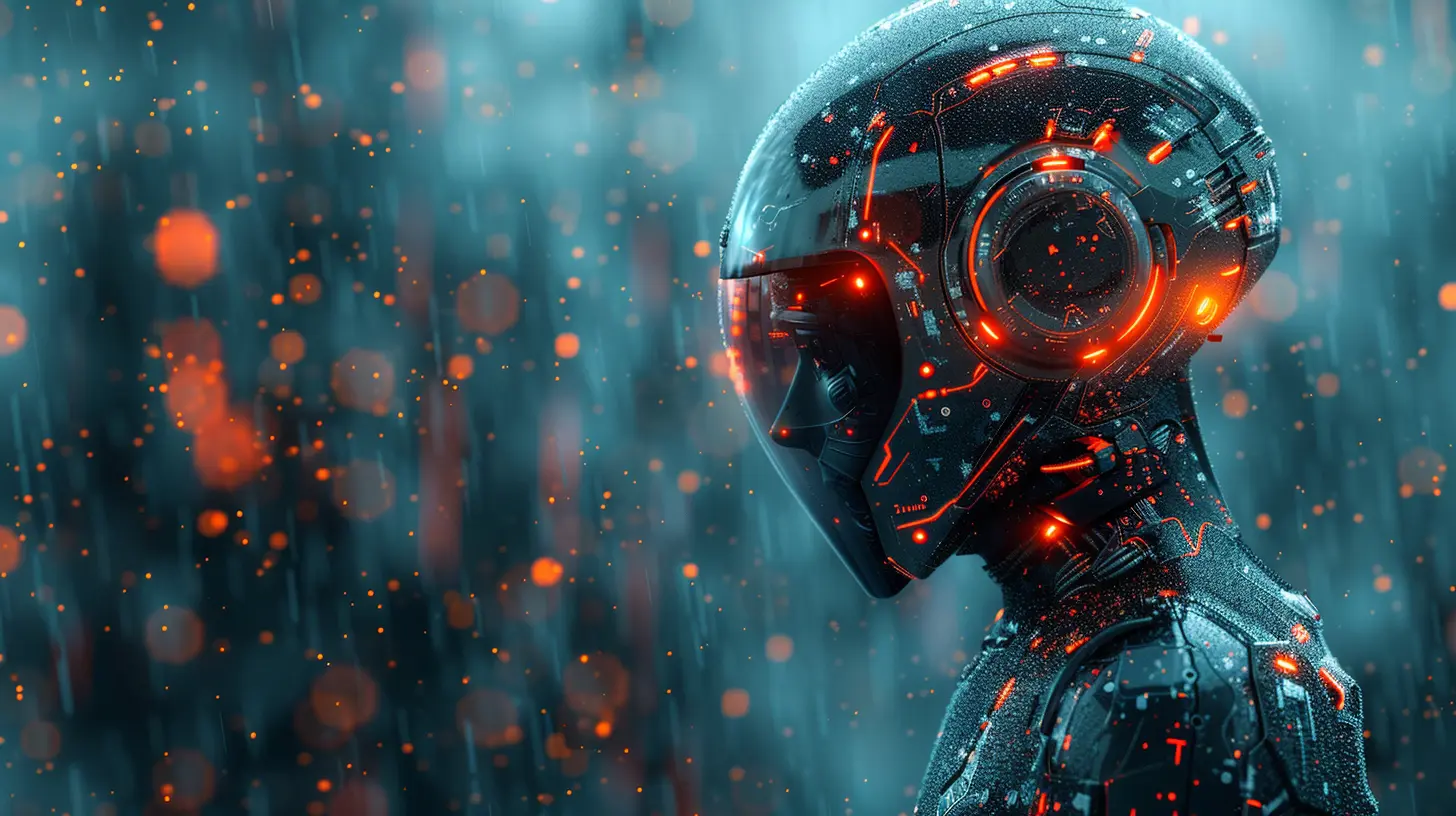How Artificial Intelligence Makes Single Player Games Smarter
19 October 2025
It’s a wild time to be a gamer, especially if you're someone who loves getting lost in the immersive world of single-player games. From massive open-world adventures to gripping narrative-driven experiences, games have come a long way—and artificial intelligence (AI) is a big reason why. But what does it actually mean when we say there’s “AI” in a game? And how exactly is it making single-player games smarter, more realistic, and way more fun?
Let’s press start and find out.
What Is Game AI, Really?
First things first—when we talk about AI in gaming, we’re not discussing the same level of intelligence you'd find in Siri or ChatGPT. Game AI is a bit different. It’s all about programming non-playable characters (NPCs) and elements in a way that they respond intelligently to what you do. Think of it like teaching the game’s inhabitants how to act, react, and strategize based on the player's actions.So, instead of just having enemies run directly at you in a straight line (boring, right?), AI in games lets them seek cover, coordinate attacks, flank you, and even retreat if things aren't going their way. That’s what makes a solo gaming experience feel alive.
How AI Changes the Game in Single Player Mode
You know that moment when you're sneaking around in a stealth game and the guards actually seem smart? Or when companions in a story-driven RPG react to your decisions in ways that feel authentic? That’s AI working its magic.Let’s break down the core ways AI is revolutionizing single-player gaming.
1. Smarter Enemies Keep You on Your Toes
Remember the days when enemies would stand still and shoot at you until you either killed them or walked away? Not anymore.Modern AI makes enemies behave more like real opponents. They:
- Take cover and change positions
- Use squad tactics
- Call for reinforcements
- Flee if they’re losing badly
Games like The Last of Us Part II and F.E.A.R. are great examples. The enemies in these titles don’t just wait to be shot—they think, move, and react in real-time. It's like playing against a friend who’s actually trying to beat you.
2. Companions Who Actually Feel Human
Let’s talk about companions. You know, those AI-controlled sidekicks who either help a ton… or totally get in your way?Thanks to better AI, companions are now smarter than ever. Think Ellie in The Last of Us, Atreus in God of War, or even Elizabeth in BioShock Infinite. They:
- Assist in combat
- Solve puzzles
- React to story elements
- Offer emotional commentary
They feel less like robotic tag-alongs and more like real characters with personalities. And honestly? That makes the whole experience more engaging. It’s like having a co-op partner who doesn’t eat all the health packs. Sweet.
3. Dynamic Storytelling That Responds to You
Games used to have one story. You played it from start to finish. That was it.Now? Thanks to AI, we’re stepping into the era of dynamic storytelling. Your choices matter. They shape the world, bend the narrative, and change how characters react to you.
In titles like Detroit: Become Human or Mass Effect, AI tracks your choices, behaviors, and even subtle interactions. Then it tailors the story accordingly.
This makes you the actual architect of your own experience. No two playthroughs are alike.
4. Procedural Generation for Infinite Possibilities
Imagine never playing the same game world twice. That’s what procedural generation does—and it's powered by AI.Games like No Man’s Sky and Minecraft use AI-driven algorithms to generate massive, unique worlds on the fly. That means:
- Endless map variations
- Unique enemies and resources
- Random events and encounters
It’s like having a game that builds itself around you. Wild, right?
5. Realistic NPCs That React to the World (And You)
NPCs used to be pretty predictable. You say a thing, they say a thing, repeat forever.Not anymore.
Today’s AI allows NPCs to:
- React to your gestures and choices
- Remember past interactions
- Adapt their behavior over time
In Red Dead Redemption 2, for example, people on the street will remember if you were being rude—or friendly—in the past. That adds a layer of depth you’d expect in the real world, not a video game.
It makes the game world feel lived in. Alive. And that keeps you coming back for more.
Behind the Scenes: How It All Works
Okay, so the results are awesome—but how does all this work under the hood?Let’s get a bit nerdy (just for a second).
Games use a variety of AI techniques like:
- Decision Trees: These help NPCs decide what to do based on specific conditions. (If player near, then attack.)
- Finite State Machines (FSM): NPCs have “states” like idle, alert, attack, or flee, and they switch between them based on what’s happening around them.
- Pathfinding Algorithms: This helps characters move around the world intelligently—no getting stuck on doors or walking off cliffs (unless it’s part of the story).
- Behavior Trees: Think of these as upgraded decision trees. They create more complex and realistic behaviors.
More advanced systems even incorporate machine learning, where the game can actually learn from your behavior and adapt in real time. Mind-blowing, right?
AI-Driven Immersion: Making the World Feel Real
One of AI’s biggest strengths? Immersion.Nothing pulls you out of a game faster than dumb characters or robotic animations. But with smart AI, everything feels more natural. Birds fly away when you get close, enemies taunt you mid-fight, weather systems shift with the story’s mood—it’s like the game is watching you and reacting.
You’re not just playing in a sandbox—you’re in a living world. And AI is the puppeteer behind the curtain pulling all the strings.
The Future of AI in Single Player Games
So, where is this all headed?We’re just scratching the surface right now. In the next few years, expect AI in games to:
- Learn from your play style and dynamically adjust difficulty
- Generate entire story arcs based on your decisions
- Speak with you using natural conversation (like having a real chat with an NPC)
- Simulate deep emotions and relationships with AI characters
Imagine a single-player RPG where characters genuinely form feelings and long-term memories of you. Creepy? Maybe. Cool? 100%.
Games won’t just be about beating levels—they’ll be about building relationships, changing worlds, and creating stories that matter.
But Is “Too Smart” a Problem?
Here’s a fun question: can AI ever be too good?If enemies are reacting like real pros, and the world is always adapting to your tactics—does it make the game too hard? Too unpredictable?
Well, good game design means balancing challenge with fun. And many developers build in AI “handicaps” that keep enemies from being perfect so you don’t get frustrated.
Plus, most games will give you difficulty modes where AI behaves differently. So if you’re in the mood to crush some bots, there’s a mode for that. And if you want the ultimate survival experience? Crank it to max and let the AI test your skills.
Final Thoughts: The Power of Smart AI in Single Player Games
AI is the unsung hero behind so many of our favorite gaming moments. Whether it’s an enemy ambushing you out of nowhere, a companion saving your hide in the nick of time, or a twist in the story that actually adapts to your past decisions—AI is what makes those moments possible.Single-player games aren’t just getting prettier; they’re getting smarter. And that makes them more engaging, more emotional, and more unforgettable.
So the next time you’re deep into a game and thinking “Dang, that was clever”… tip your hat to the AI quietly pulling the strings in the background.
all images in this post were generated using AI tools
Category:
Single Player GamesAuthor:

Leandro Banks
Discussion
rate this article
1 comments
Isabella McDowney
AI is revolutionizing single-player games, pushing boundaries of immersion and challenge. No longer mere scripted experiences, these games adapt, learn, and react, creating dynamic narratives that respond to player choices. Embrace the future—intelligence in gaming is no longer optional; it’s essential.
October 22, 2025 at 3:57 AM

Leandro Banks
Absolutely! AI is transforming single-player experiences by creating adaptive, immersive worlds that respond to players, making each journey unique and engaging. Exciting times ahead!


